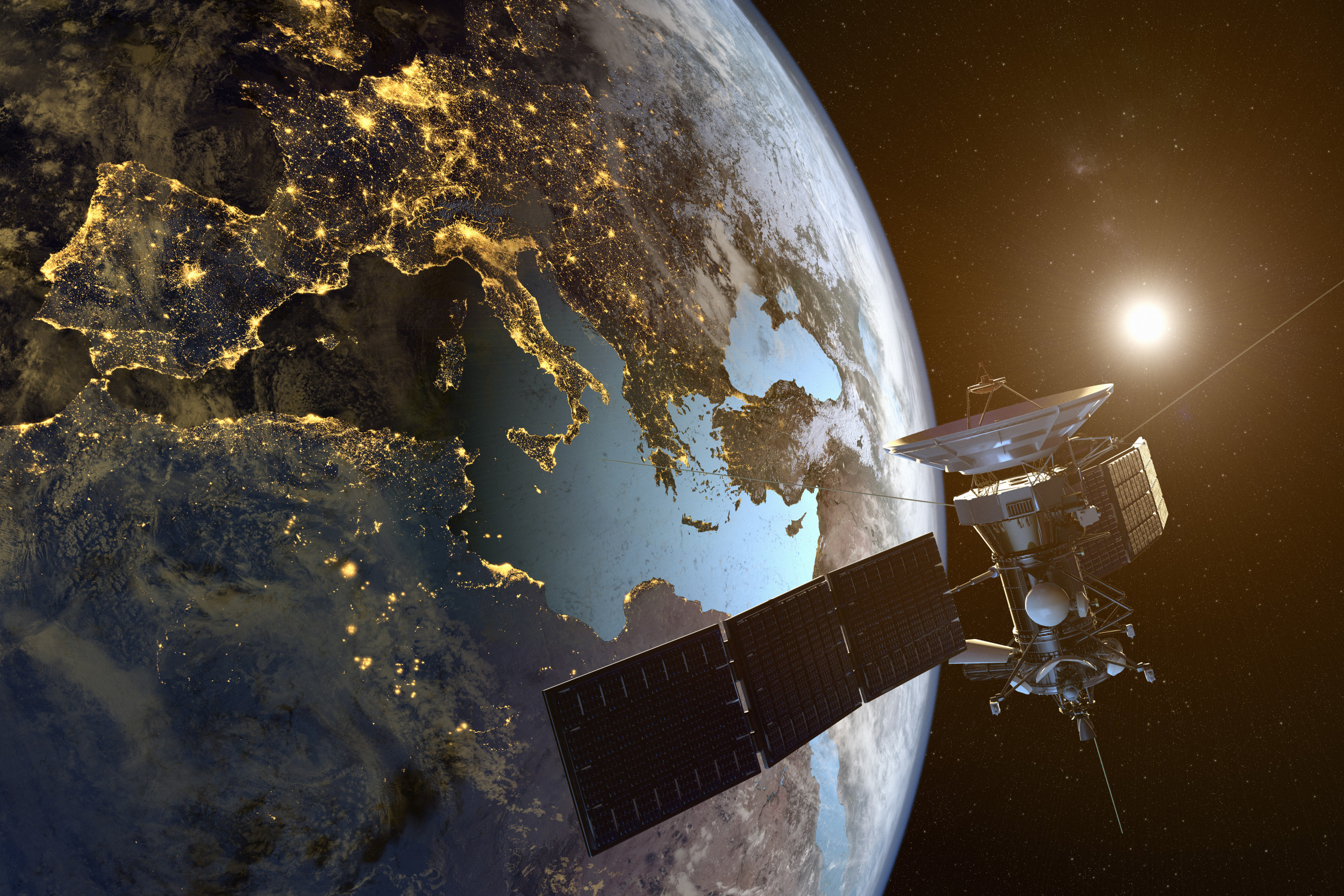
Meet SWOT, the satellite that will teach us more about Earth's water than we've ever known. SWOT is NASA's Surface Water and Ocean Topography satellite that will survey more than 90% of the planet's water, from small freshwater lakes to vast ocean depths. NASA says SWOT's high-definition instrumentation will provide researchers with an unprecedented view of how water resources are changing and how disaster-preparedness organizations can protect communities.
"The satellite will address some of the most pressing climate change questions of our time," according to NASA's Jet Propulsion Laboratory.
Some have said that humans must leave Earth to save it. Actually, we've been doing that for decades. Space exploration played a role in responding to the 1970s U.S. energy crisis, developed a method to produce biofuel from algae, and contributed to water filtration methods.
Today, the United Nations' 2030 Agenda includes 17 Sustainable Development Goals, all of which can benefit from space. Space exploration is fundamental to keeping Earth healthy, from satellite mapping to developing new fuels and technologies to expanding global internet access.
Here's how space exploration will continue to impact some of those sustainable development goals.
Goal 3: Good Health & Well-Being
Space exploration has been instrumental in studying disease, monitoring the spread of vector-borne illnesses and expanding our knowledge of vision and cognition issues. As the U.N. Office for Outer Space Affairs notes, microgravity benefits medical research through weightlessness experimentation and providing research conditions unavailable on Earth.
The International Space Station is a remarkable laboratory for health advances. NASA scientists are using microgravity to search for a cure for Alzheimer's. Another revolutionary study explores how spaceflight changes an astronaut's immune system, which could lead to advances in Parkinson's and M.S. research.
Canadian medical experts are transferring robotic technology employed on the ISS to operating rooms as surgical robots. And scientists developed a new prosthetic leg, which runs more quietly and naturally, using components designed for the ISS.
"Space exploration is reinventing healthcare" is the title of an article in The Hill that details how studying the stressful effects of space living will lead to breakthroughs at home. The more time we spend in space, the longer we'll live on Earth.
Goal 6: Clean Water & Sanitation
As mentioned earlier, NASA predicts that SWOT will "revolutionize oceanography" with broader and more high-resolution coverage of our water systems. With better water monitoring, we'll learn more about how oceans trap and transport heat and carbon, enhancing our understanding of air-temperature rises.
We'll also collect better data to address clean water and sanitation, which are essential to global health. According to UNOOSA, 800 children die each day from preventable diseases caused by contaminated water. Space offers the framework to change that.
Space4Water, launched in 2018, is a global platform for employing space technology to increase global access to clean water. Space technologies, notably satellites, can reduce the impact of droughts and floods, map water movements and track global ice budgets.
For instance, Space4Water highlighted how an organization in Kenya empowers women in indigenous tribes to use satellite maps to sketch out the knowledge of their territories, including water sources. Through the initiative, women can create maps of water and medicines in their language.
Goal 7: Affordable & Clean Energy
UNOOSA says that the sun beams enough energy to Earth in one hour to satisfy our energy needs for a year. The key is to harness that energy sustainably, which space technology has made possible.
In 1954, Bell Labs demonstrated how a solar cell could power a toy Ferris wheel. But the application's first practical uses were in satellites. Now, solar-powered satellites collect energy for use on Earth, and solar panels, once considered extravagant, are available at home-supply stores. Space-based solar power could be the "next big thing for clean energy on earth," according to Scientific American.
Clean, sustainable fuel is imperative in spaceflight. Future astronauts will mine resources on the Moon and Mars to fuel their transport. At home, NASA is testing sustainable aviation fuels that are more efficient and reduce carbon emissions. We'll use the fuels in commercial space travel and rockets. Further, NASA is funding a study exploring liquid ammonia as a potential carbon-free fuel.
Goal 11: Sustainable Cities & Communities
More than half the world's population lives in cities, according to the World Bank, which projects six billion urban citizens by 2045. As UNOOSA observes, significant challenges exist to maintaining healthy, prosperous cities without overconsuming resources. The data we collect from space is crucial to meeting these challenges.
UNOOSA points out that space technologies will benefit urban planning through precise mapping and infrastructure monitoring, and smart water and waste systems will improve city services. Of course, green actions, such as the Space Energy Initiative, seek to foster energy equity through space technology. And NASA's research into rooftop gardens looks to temper urban heat islands and make cities more comfortable.
Citizens even can become stakeholders in these sustainability projects, as NASA is crowdsourcing solutions through ARSET, the Applied Remote Sensing Training Program. NASA has hosted ARSET training webinars for applying satellite data to sustainable urban planning, access to housing and transportation and disaster readiness. ARSET helps train everyday citizens from all skills and backgrounds to use satellite data to understand what's happening at home.
Morgan Stanley projects that space will be the next trillion-dollar domain, primarily based on satellite broadband and rocketry. Sustainability will further fuel this growth. In fact, Morgan Stanley calls sustainability "one of the more exciting and underappreciated subdomains of the emerging space economy."
Through its Artemis Program, NASA plans to build a sustainable lunar base that will eventually launch us to Mars. That enormous undertaking also will make Earth a more sustainable place to live.
Uncommon Knowledge
Newsweek is committed to challenging conventional wisdom and finding connections in the search for common ground.
Newsweek is committed to challenging conventional wisdom and finding connections in the search for common ground.





